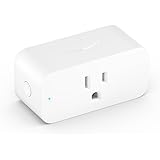This post contains affiliate links. As an amazon associate I earn from qualifying purchases. The contents of this page are for educational purpose. Always, seek advise of a licence professional in your area for your needs.
What is Tankless Hot Water Heater
A tankless water heater, also known as an on-demand water heater, is a system that heats water directly without the use of a storage tank. When hot water is needed, cold water flows through a heat exchanger, where it is heated by either a gas burner or electric element.
As a result, tankless water heaters provide a continuous supply of hot water, only heating water as it is needed, which can result in energy savings compared to traditional hot water tanks.
On the other hand, a hot water tank, also known as a storage water heater, operates by storing a reservoir of hot water in a tank, which is kept heated at all times. When hot water is used, it is drawn from the tank and replenished with cold water, which is then heated to maintain the desired temperature.
When comparing tankless water heaters to hot water tanks, there are several factors to consider:
1. Energy Efficiency: Tankless water heaters are generally more energy-efficient than hot water tanks because they only heat water as needed, reducing standby heat loss. This can result in lower energy bills over time.
2. Space Savings: Tankless water heaters are typically smaller and more compact than hot water tanks since they do not require a large storage tank. This can be advantageous for homes with limited space.
3. Continuous Hot Water: Tankless water heaters provide a continuous supply of hot water, whereas hot water tanks can run out of hot water if the tank is depleted. This can be beneficial for households with high hot water demand.
4. Upfront Cost: Tankless water heaters tend to have a higher upfront cost than hot water tanks. However, the long-term energy savings may offset this initial investment.
5. Longevity: Tankless water heaters often have a longer lifespan than hot water tanks, lasting up to 20 years or more with proper maintenance. Hot water tanks typically last around 10-15 years.
In the long run, the choice between a tankless water heater and a hot water tank depends on factors such as energy efficiency, hot water usage patterns, space availability, upfront cost, and personal preference.
While tankless water heaters may offer greater energy savings and longevity, hot water tanks may be more cost-effective upfront and sufficient for households with lower hot water demands.
Ultimately, it’s essential to weigh the pros and cons of each option and consider your specific needs and circumstances before making a decision.
This post contains affiliate links. As an amazon associate I earn from qualifying purchases. The contents of this page are for educational purpose. Always, seek advise of a licence professional in your area for your needs.









